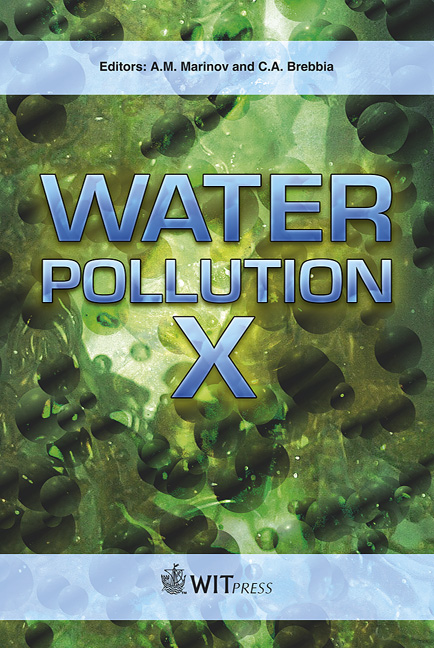Volatilization Of Benzene From Gasoline: The Effect Of Ethanol Blends
Price
Free (open access)
Transaction
Volume
135
Pages
8
Page Range
39 - 46
Published
2010
Size
309 kb
Paper DOI
10.2495/WP100041
Copyright
WIT Press
Author(s)
F. Fedrizzi, E. Lovatel, N. Vieceli, E. Cardoso, J. Cagliari, A. Finotti & I. Nascimento
Abstract
In this work experiments were performed with vapor collection in columns to assess the evaporation profile of benzene from gasoline-ethanol blend fuels. The vapors from two columns simulating gasoline-contaminated soils (with and without ethanol) were monitored for 77 d. The instrumental analysis was performed by Gas Chromatography (GC) with a Flame Ionization Detector (FID). Compound identification was based on the GC retention times of standard BTX (benzene, toluene and xylenes). The concentration of benzene in the vapor phase decreased by 89.09%, considering the entire experimental period, while the toluene and xylene concentrations were increased by 239.34 and 251.78%, respectively. These results suggest that the benzene evaporation behavior was affected by the interactions among ethanol and other aromatic compounds. These results are particularly important, since ethanol is an alternative to gasoline blends. Furthermore, benzene (a well known carcinogen) was retained in the liquid phase and, in this way, can reach the underground water sources. These findings can point out necessary changes in traditional risk models for soil spills that are based on compound concentrations in the environment. Keywords: gasoline, ethanol, benzene, BTX, evaporation.
Keywords
gasoline, ethanol, benzene, BTX, evaporation





